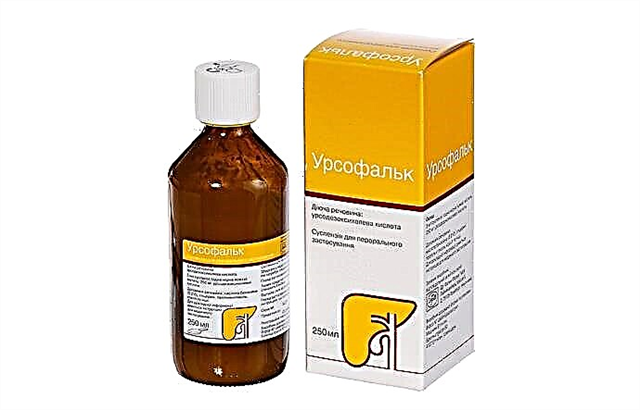
Violation of blood flow in the veins is a fairly common problem during the period of bearing a baby. The growing uterus puts pressure on the vessels, which makes it difficult for blood to move and increases pressure. The situation is complicated by a change in hormonal levels.
Such changes contribute to the appearance of leg edema, varicose veins and hemorrhoids. For the treatment of these pathologies, a drug called "Phlebodia 600" is in demand. We will analyze why it is prescribed for women in position and how to take this medication according to the instructions for use for pregnant women.


Features of the drug
"Phlebodia 600" is a round convex tablet coated with a dense pink shell. They are packed in blisters of 15 pieces and sold in 1, 2 or 3 blisters per pack.
The active substance of the drug is diosmin, a compound from the group of flavonoids.
If we take into account its dry matter, then the dosage of such a compound in 1 tablet is 600 mg... To form the core and shell of the tablet, stearic acid, beeswax, talc, dyes, silicon dioxide and other inactive ingredients are added to diosmin.


Operating principle
"Phlebodia 600" refers to angioprotective agents, since under the influence of such tablets, blood microcirculation increases, and the capillaries become more durable and less permeable. Thanks to these effects, the transport of oxygen through the vessels is improved, which is important for the replenishment of all internal organs.
The remedy also has a venotonic effect. When taking it:
- the tone of the venous walls increases;
- the stagnation of blood in the veins is eliminated;
- the elasticity of the veins decreases;
- they are more effectively affected by adrenaline and norepinephrine.
Additionally, the medication also affects the lymphatic system, lowering the lymphatic pressure and stimulating the drainage of the lymphatic vessels. Under the action of diosmin, the lymphatic capillaries become dense, and their tone increases, as does the frequency of contraction.


In addition, the active substance "Phlebodia 600" has decongestant and anti-inflammatory properties... They are due to the effect of diosmin on the formation of prostaglandins, the penetration of oxygen into cells and the movement of leukocytes.
The drug is quickly absorbed, after which it is transferred with the bloodstream to the vena cava, veins of the legs and internal organs.
The accumulation of diosmin in their walls is noted several hours after ingestion.
Moreover, it remains in the vessels for 3-4 days, after which most of the active substance leaves the body through the kidneys.
Is it allowed during pregnancy?
In the annotation to the tablets it is noted that drinking "Phlebodia" during the period of bearing a child permissible only as prescribed by a doctor... The doctor should examine the expectant mother and determine if such a drug is needed. If, in his opinion, the treatment will be beneficial and alleviate the woman's condition, then the use of "Phlebodia 600" is justified.
Studies in which pregnant women took part did not show teratogenic and toxic effects of the drug on the fetus. According to the doctors' reviews, there is no data on the negative impact on the unborn baby during the clinical use of "Phlebodia 600" either.


However, in the 1st trimester, they still try not to use this medication.if you can refuse to take pills. In most cases, in the early stages, there is no need for such therapy, since the placenta has not yet formed, and the pressure on the pelvic vessels is minimal. That is why the use of "Phlebodia 600" for up to 12 weeks is not recommended. But in the 2nd or 3rd trimester, the drug is prescribed quite often, since there are many indications for its use at a later date.
When is it prescribed for expectant mothers?
The main reason for using "Phlebodia 600" is lymphovenous insufficiency, which is manifested by heaviness and fatigue in the legs.... Women with a deteriorated outflow of venous blood complain of a feeling of fullness, swelling and pain, which increase in the evening. "Phlebodia 600" helps to relieve the condition, therefore it is most often prescribed for problems with leg veins.
Another common indication for these pills is acute hemorrhoids. The disease occurs due to the expansion of veins in the rectal area. Its provoking factors during pregnancy are fetal growth and constipation, which expectant mothers often suffer from. The disease is manifested by severe discomfort and pain, as well as bleeding from the rectum.


Additionally, "Phlebodia 600" is included in the complex of treatment of various problems with microcirculation.
The drug is used for swelling, leg cramps and similar symptoms.
Expectant mothers can also be prescribed it if the blood flow in the placenta is disturbed. In addition, the practice of clinical use of the drug showed that the women taking it were in good shape, which reduced blood loss during childbirth.
If the doctor diagnosed a woman with early aging of the placenta, fetal hypoxia or a high risk of such problems, "Phlebodia 600" is used to treat or prevent them. The tool normalizes blood flow between the vessels of the mother and the fetus, eliminates the stagnation of fluid in the tissues and blood vessels, and thins the blood if it is too thick. This contributes to the better functioning of the placenta, which has a positive effect on the condition of both the future baby and the woman herself.

Contraindications
An obstacle to the use of "Phlebodia 600" may be hypersensitivity to any of the components of the tablets. Although rare, the medication can cause itching, redness, rashes, and other symptoms of intolerance. If they occur, further treatment should be immediately abandoned and a doctor should be consulted in order to choose another therapy.
Side effects
Some women experience uncomfortable digestive symptoms such as nausea or heartburn while taking Phlebodia 600.
In rare cases, the medication provokes a headache.
In the event of such or other negative phenomena, the expectant mother should consult a doctor to decide whether to continue treatment.

Instructions for use
A pronounced tonic effect on the veins is provided by 600 mg of diosmin, therefore, in case of problems with the veins of the legs, most often "Phlebodia 600" is taken one tablet per day. It is this dosage of the drug that is considered optimal. The tablet is swallowed in the morning with water.
The course for venous insufficiency is often quite long, for example, the drug is drunk for 2 months. If after the completion of the course after a while the symptoms have resumed, "Phlebodia 600" is discharged again.

A different regimen is used to treat hemorrhoids. According to her, in the first 4 days of therapy, the drug is taken three times a day, one tablet, then - twice a day, one tablet. The drug is recommended to be drunk with meals.
The duration of treatment for hemorrhoids is determined individually.
For example, if the problem is chronic, then after the elimination of acute symptoms, "Phlebodia 600" is not canceled, but continue to take 1 tablet a day for another 1 month.
Reviews
About the use of "Phlebodia 600" they speak mostly positively. The tablets are called effective and easy to use. According to expectant mothers, taking them helped ease the symptoms of varicose veins or hemorrhoids, and side effects were extremely rare. Among the disadvantages of the drug, only its high price is mentioned.


Analogs
There are several drugs that have the same active substance as the "Phlebodia 600". These are "Vasoket", "Phlebofa", "Diosmin" and "Venolek". All of them are presented in tablets with a dosage of 500-600 mg of diosmin, therefore, they can become a full-fledged replacement for "Phlebodia 600", if there is no such medication in the pharmacy.
Depending on the indications for the expectant mother, instead of "Phlebodia 600", the doctor can also prescribe drugs with another active substance.
- Troxevasin. This medicine is also a flavonoid, therefore it has an angioprotective effect on veins and small blood vessels. During pregnancy, it is often prescribed in the form of a gel, since it is allowed at any time of gestation. "Troxevasin" in capsules is used in 2-3 trimesters for venous insufficiency, varicose veins or hemorrhoids.

- "Lyoton 1000"... This gel formulation contains sodium heparin. A pregnant woman can use it as directed by a specialist for edema, hematomas, inflammation of the veins and varicose veins.

- "Dr. Theiss Venen gel". This is another gel prescribed for varicose veins. It is permissible to use it for any period of time, after consulting a doctor. The active substances of such a medicine are obtained from horse chestnut and calendula.

- "Courantil". This drug in the form of pills is able to dilate blood vessels, prevent platelets from sticking together and stimulate immunity. Pregnant women are prescribed it with fetoplacental insufficiency, an increased risk of blood clots, hemorrhoids, edema, varicose veins, oligohydramnios. According to the doctor's prescription, such a remedy can be used for any period.

- "Actovegin"... Such a drug improves microcirculation, helps to eliminate oxygen starvation, and has a positive effect on the liver and heart. It is represented by tablets, forms for external use and injection solution. Its analogue is "Solcoseryl".

Watch the video on the application of "Phlebodia" further.



